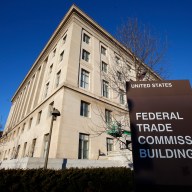A new Canadian research study has uncovered evidence of a biological link between severe psychological stress and breast cancer.
The five-year study, headed by Dr. Chris Mueller at Queen’s University, discovered that the stress hormone hydrocortisone turns off an important tumour-suppressing gene directly related to breast cancer.
Hydrocortisone is a synthetic copy of the hormone cortisol, which the body releases during times of intense psychological distress, such as after the death of a loved one or the loss of a job.
Funded by the Ontario region of the Canadian Breast Cancer Foundation, the study is revolutionary because it is the first of its kind to actually pinpoint a potential biological link between stress and breast cancer. Previous research studies have focused on survey-based evidence showing at least an anecdotal link but without hard biological evidence to prove it.
“It’s really the first example of explaining that link between stress and breast cancer,” Mueller said.
While identifying a biological between stress and cancer is a great first step, Mueller hopes his research will lead to better assessment and prevention by helping identify at-risk women earlier and more accurately.
“If we can develop a method of pinpointing those who may be particularly susceptible … we may be able to support them in taking steps to reduce their risk,” he said.
Sharon Wood, CEO of the Canadian Brest Cancer Foundation in Ontario, says the foundation is extremely pleased with the study’s results and also hopes the research will eventually make better prevention possible.
“We’re very interested in learning the causes and risks so we can stop breast cancer before it starts.
“What are some clear guidelines we can give women? Is there going to be an impact on women’s lives? That has to be the next step to transform this biological link to something specific,” Wood said.
Mueller says finishing the study wasn’t easy, as traditional medicine still balks at labelling stress as a cancer agent.
“It’s still a controversial area — it still met with some resistance. The mainstream medical field does not recognize stress as a risk factor because it’s hard to quantify,” he said.
Mueller, who has 15 years of experience in studying breast cancer, considers his work a personal crusade to save women from the same disease many in his own extended family have struggled with.
“It is a personal motivation for me. I come from a high-risk family,” Mueller said.
















